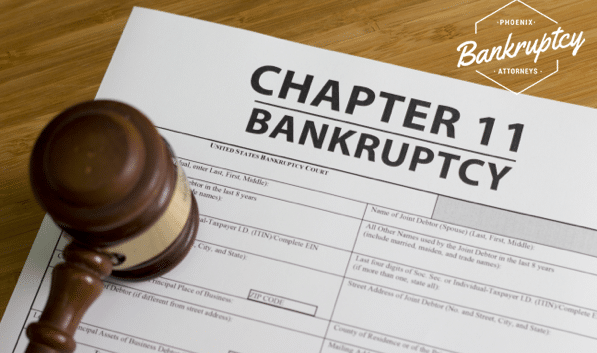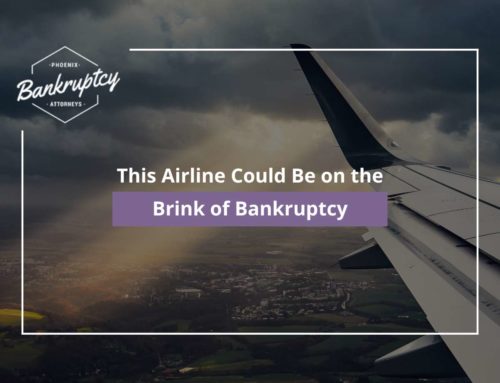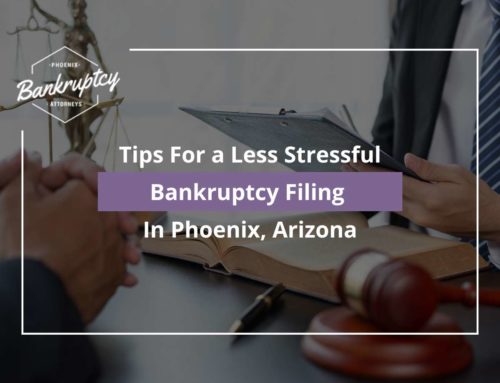Taco Chain Rubio’s Joins the Chapter 11 Bankruptcy Club
 The coronavirus pandemic started a wave of Chapter 11 bankruptcy filings that has yet to slow down. The latest household-name company to seek Chapter 11 bankruptcy protection is Rubio’s, a fast food chain that specializes in fish tacos. The eatery, which was founded in 1983, hopes to restructure its debts and emerge from bankruptcy on the path to returning profits.
The coronavirus pandemic started a wave of Chapter 11 bankruptcy filings that has yet to slow down. The latest household-name company to seek Chapter 11 bankruptcy protection is Rubio’s, a fast food chain that specializes in fish tacos. The eatery, which was founded in 1983, hopes to restructure its debts and emerge from bankruptcy on the path to returning profits.
Rubio’s Decline Started Before the Pandemic
Rubio’s problems began long before the pandemic. The restaurant chain was experiencing a period of growth from 2012-2016 but began facing issues in 2017. The Affordable Care Act created a new IRS requirement that employees have valid social security numbers. This resulted in the termination of 30% of Rubio’s line cooks. Out of those line cooks that were terminated, the average experience with the company was 9.5 years.
Management that had been prepared for continued growth were surprised by the newfound burden of re-staffing and training new line cooks. The chain had attempted to expand into North Carolina and Florida during that period, and those stores suffered the effects of the mass line cook termination the most. Stores were so understaffed that operating hours had to be reduced, and the chain began to receive increased customer complaints about quality and service.
As staffing problems and customer complaints increased, sales began to decrease in 2017 and 2018. Rubio’s was focusing on improving customer satisfaction in the time frame leading up to the pandemic. However, it’s common knowledge that the hospitality industry- especially restaurants- have been hit especially hard by the spread of COVID-19. Starting in March 2020, most states enacted stay at home orders that forced restaurants to serve only take out and drive through customers. Dine in customers previously accounted for 47% of Rubio’s sales.
In response to the pandemic, some Rubio’s locations simply closed instead of attempting to operate on a to-go only basis. Corporate employees had their salaries cut by 30%, and 45% of management was furloughed. An additional 1,400 Rubio’s employees were furloughed due to the pandemic.
At the start of the pandemic, Rubio’s had 170 locations. During May and June, 26 locations closed for good in Colorado and Florida. The company listed $82.3 million in debts in its petition. Rubio’s received a $10 million pandemic payroll protection loan.
What is Chapter 11 Bankruptcy?
A common misconception is that when a business files bankruptcy, it must cease operating permanently. This isn’t necessarily true in Chapter 11 bankruptcy. A business can use Chapter 11 to assist in the process of shutting down for good, but can also use bankruptcy to restructure debts and continue operating. The company’s top creditors will form a committee. While the company will maintain management over day to day operations, the committee will have authority over more significant business decisions.
After filing the bankruptcy petition, the company will submit a proposal to its creditors to restructure its debts and emerge from bankruptcy. Common strategies include downsizing, converting debts into ownership shares, finding additional funding and refocusing the business, and selling out to a third party buyer. The committee will vote on the company’s proposal. If the committee isn’t able to reach agreement on the company’s bankruptcy plan proposal, the members can collaborate to draft their own. Once a plan is approved by the court, the company can begin acting on its terms to emerge. This can take as long as a few months or longer.
 The other type of bankruptcy most often used by businesses struggling with debt is Chapter 7. Chapter 7 is a liquidation bankruptcy that is available to some businesses and individuals who meet certain eligibility criteria. In a process that generally only takes 4-6 months, unsecured nonpriority debts will be discharged. If a company files Chapter 7 bankruptcy, it doesn’t have the same option to continue operating as in Chapter 11. The business must cease operations permanently, and the business owner will need to start a new business under another name.
The other type of bankruptcy most often used by businesses struggling with debt is Chapter 7. Chapter 7 is a liquidation bankruptcy that is available to some businesses and individuals who meet certain eligibility criteria. In a process that generally only takes 4-6 months, unsecured nonpriority debts will be discharged. If a company files Chapter 7 bankruptcy, it doesn’t have the same option to continue operating as in Chapter 11. The business must cease operations permanently, and the business owner will need to start a new business under another name.
The other most common type of bankruptcy is Chapter 13, or a wage earner’s bankruptcy. This chapter is generally available to those whose income is too high to qualify for Chapter 7. In Chapter 13 bankruptcy, debts are reorganized into a payment plan that lasts either 3 or 5 years. This chapter of bankruptcy also allows debtors to catch up on payments that are in arrearages, like a mortgage or child support. All chapters of bankruptcy protect the filer from collection efforts by creditors while the case is active.
A Chapter 11 Bankruptcy Plan for Rubio’s
In a statement made on the same day as the bankruptcy filing, October 26, 2020, the company’s president and CEO Marc Simon assured that Rubio’s had a strong financial footing in the beginning of the year that will allow it to successfully navigate through bankruptcy. Part of the company’s plan is to transfer some of its debts into ownership shares for its lenders. This will allow the company more resources to focus on its remaining locations in Arizona, Nevada, and California. Mill Road Capital and the rest of the chain’s creditors seem to agree with the plan, which includes the addition of family meal kits, curbside delivery, and enhanced delivery operations.
Other Big Names to File Chapter 11 Due to the Pandemic
Rubio’s is far from the only major business to declare bankruptcy as a result of the coronavirus pandemic. Other eateries to declare Chapter 11 include California Pizza Kitchen, Sizzler, NPC International (a large franchisee of Pizza Hut and Wendy’s), Chuck E. Cheese, and Ruby Tuesday. One buffet chain known for its salad bar, Sweet Tomatoes, has announced its permanent closure due to the great burdens brought on by COVID-19.
Restaurants aren’t the only businesses suffering during the pandemic. Fitness giants like Gold’s Gym, GNC, and 24 Hour Fitness have all sought the protections provided by Chapter 11 bankruptcy. Fashion retailers like J. Crew, JC Penney, Neiman Marcus, True Religion, Lucky Brand Denim, and Men’s Wearhouse have filed Chapter 11 as well.
Businesses are not the only ones struggling in 2020. Many individuals, couples, and companies are feeling the burden of Covid 19 and are in need of debt relief. If you are interested in getting a “Fresh Start” please contact our Phoenix Bankruptcy Attorneys for a free consultation and debt evaluation.





